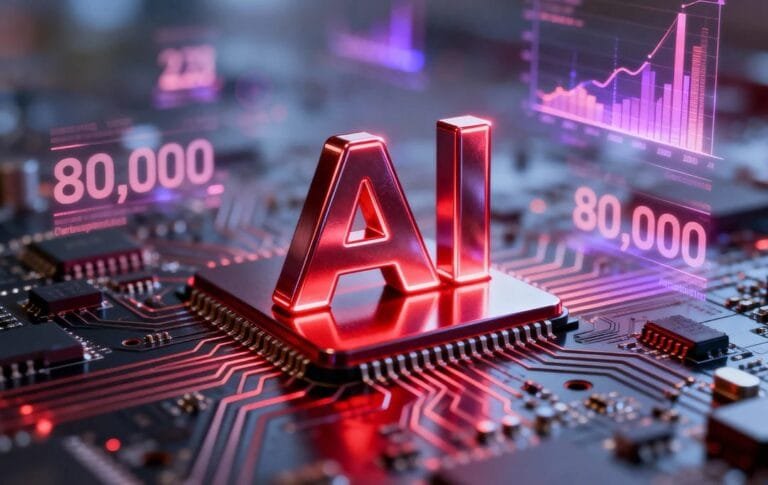
NASA and Google are developing an AI medical assistant to monitor astronauts’ health during long space missions.
NASA and Google develop an AI medical assistant to be used by astronauts on deep‑space missions
Health challenges in deep space Medical help is not immediately available in deep space away from Earth. The journey to Mars can take many months or years. During this time, astronauts face many health risks. As well as microgravity, which is due to staying in weightlessness for a long period of time, bone density decreases, muscle weakness occurs. And the cardiovascular system is negatively affected. Also radiation, which is outside the Earth’s magnetic field, astronauts are exposed to solar and cosmic radiation which can cause cancer and other health problems. And psychological stress, staying in a small confined space for a long time, staying away from family and mission pressure can have a negative effect on mental health. And emergency medicine, which may require immediate expert advice or surgical intervention in case of injury, illness or other medical emergencies. Which is easily available on Earth. But not in space.
Concept of NASA Google AI Medical Assistant
This AI assistant is not just a doctor but it is a medical crew member. Which is available 24/7. Its main purpose is to help astronauts face these challenges. It has some key features. Also real-time health monitoring which the AI assistant will continuously monitor various parameters of the astronaut’s body like heart rate, blood pressure, oxygen level etc. And this data will come from wearable sensors and devices mounted on the spacecraft. Also symptom analysis and diagnosis which when an astronaut reports a symptom. So the AI assistant will analyze it and present a possible diagnosis. It will use a huge medical database and machine learning algorithms. Also treatment and procedure guidance The AI assistant will give the astronaut step-by-step guidance for treatment. But this can also include taking medicines, doing first-aid, or even conducting a small surgical procedure. Which a non-medical specialist can also do.
Role of NASA and Google
The roles of both organizations in this project are complementary. Talking about NASA, NASA provides its expertise related to deep space missions and astronaut health. And they have years of data experience and protocols of space medicine. NASA ensures that the AI assistant is effective and safe in the harsh environment of space. And Google which is Google uses its AI and machine learning expertise. They develop the AI model, create the database, and create a user-friendly interface. Google’s capabilities help AI learn from millions of medical cases and find new solutions. Also predictive health analysis which is the AI assistant can predict potential health problems that may occur in the future by analyzing the astronaut’s health data.
For example, it can predict the risk based on exposure to radiation and suggest preventive measures. Also resource management which is the AI assistant will keep track of the medicines and medical supplies available in the spacecraft and help plan their use.
Technical Components and Methodology
This AI assistant is an integration of several advanced technologies. And machine learning which is the AI assistant learns from medical data case studies and experiences from previous space missions. And it identifies patterns and updates its findings based on new data. Also Natural Language Processing which with the help of NLP, the AI assistant can understand the language of the astronaut. Can answer their questions. And can give them clear instructions. And Computer Vision which AI assistant can analyze wounds, rashes or other physical problems using the camera. It can also identify surgical instruments during a small surgical procedure. The AI assistant will use data collected from wearable sensors and biometric devices to monitor and predict health. The Knowledge Graph shows the relationship between diseases, symptoms, treatments, and medicines, and it is a huge structured medical database.
Challenges and Ethical Considerations of NASA Google AI Medical
There are many challenges and ethical questions in this project. And Reliability which AI assistant should be 100% reliable. A wrong diagnosis or treatment can be fatal in deep space. As well as data privacy which is extremely important to keep the sensitive health data of the astronaut safe. And Overdependence which astronauts can depend too much on the AI assistant. Which can affect their own decision making ability. The human touch that AI assistants cannot provide the emotional support that a real doctor can. And the unforeseen situations that how will the AI assistant face situations that it has not been trained for?
The future possibilities that this project is not just for astronauts. This technology can have far reaching effects on Earth as well. And remote healthcare can be very useful in inaccessible areas or rural areas .This AI assistant can play an important role in places where doctors are not readily available. Also in home health care, it can help the elderly or people with chronic diseases to monitor their health condition at home.






